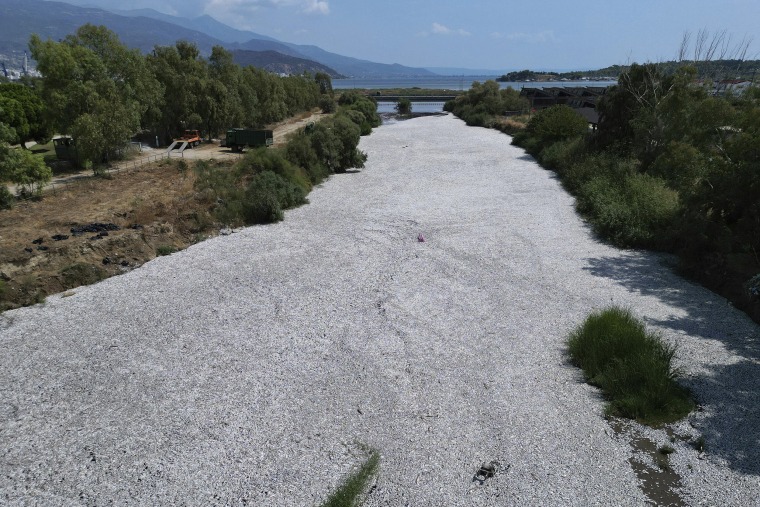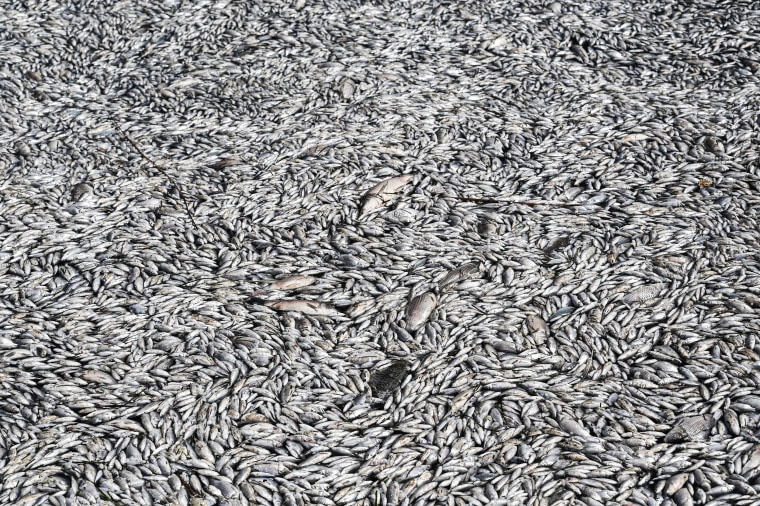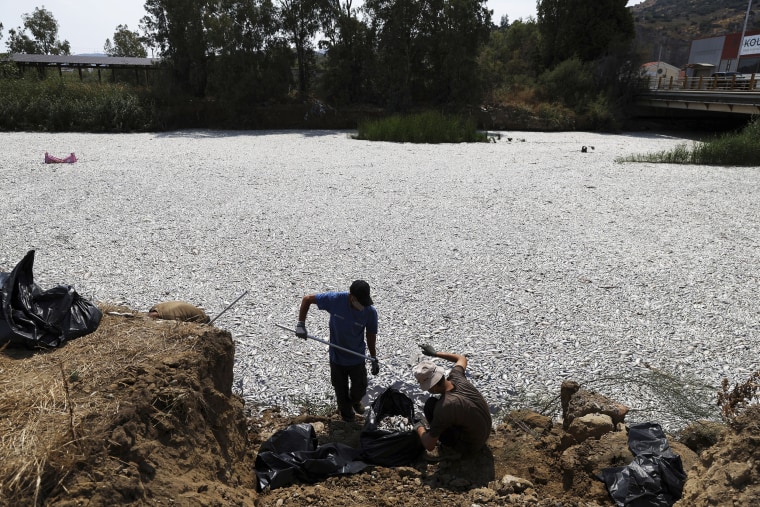Vacationers relaxing at Lepi, a harborside taverna in the popular Greek port of Volos, can usually enjoy a glass of ouzo while waiters bring them small plates of grilled octopus and stuffed peppers, all with an untainted view of the azure waters of the Pagasetic Gulf.
But this week they were treated to the fetid stench of hundreds of thousands of dead fish.
That is the environmental catastrophe authorities in Volos were dealing with Thursday, after miles of coastline in this tourist spot became awash with the rotting animals — carpeting previously idyllic seas with silvery, bloated bodies.

Officials say the freshwater fish were driven into the salty ocean by the aftermath of flooding last year. Though they are now clearing the decomposing masses, authorities worry it could still cause untold knock-on effects for the local environment.It has already been disastrous for the city’s tourism-dependent businesses.
“The smell has been so, so bad,” Theofilos Voulgaris, 48, the owner of Lepi, said by phone Thursday. “The whole sea and the whole port all around was full of dead fish.”
Though his is one of the highest-rated seafood spots on the promenade, he said this week has been the worst he can remember for the peak of the summer season. “With the smell being so bad, who wants to come here and eat fish?” he said during what would usually be a busy lunch service.
He's far from alone.

Commercial activity in the city has dropped by 80% over the last three days, its Chamber of Commerce estimates.It is just the latest extreme weather event to smash into Greece, whose economy relies heavily on tourism and agriculture and which typically welcomes more than 1 million visitors from the U.S. every year.
Scientists say the human-driven climate crisis is exacerbating the severity and frequency of the wildfires, soaring temperatures and heavy rains that have increasingly blighted the region in recent years.
Early last September, Storm Daniel barreled into this Mediterranean country and its islands, killing at least 17 people and destroying swaths of crops, mostly cotton, of which Greece is by far the largest producer in the European Union.
Farmland was flooded in the breadbasket of the Thessaly Plain, to the north of Volos. And the rains also swelled Lake Karla, a nearby body of water that was deliberately reduced in size in the 1960s to increase farmland and combat malaria.
As the lake waters receded back to normal in the year since, freshwater fish have been forced downstream and into the saltwater of the Pagasetic Gulf at Volos, likely killing them in their hundreds of thousands, officials said this week.
The cleanup is well underway, and most fish have now been removed by trawlers dragging nets or excavators perched into the shore, dumped in the back of trucks.

Officials put the number of fish in the hundreds of thousands. Looking out over the port at noon Thursday local time (5 a.m. ET), Voulgaris, the restaurant owner, estimated that 90% of these had been cleared up. By the afternoon, authorities said 100 tons of fish had been removed and sent to the incinerator.
But a political fight remains — not to mention questions over Greece's future as a holiday haven as it is increasingly besieged by extreme weather.
Volos Mayor Achilleas Beos has accused the central government of failing to put nets at the mouth of the river, which he said would have averted the ecological and economic catastrophe.
"They didn't do the obvious, to put a protective net," he said at an animated news conference Wednesday.
He said rotting fish could create an environmental disaster for other species in the area.
The Greek environment ministry did not immediately respond to requests for comment by phone and email.
